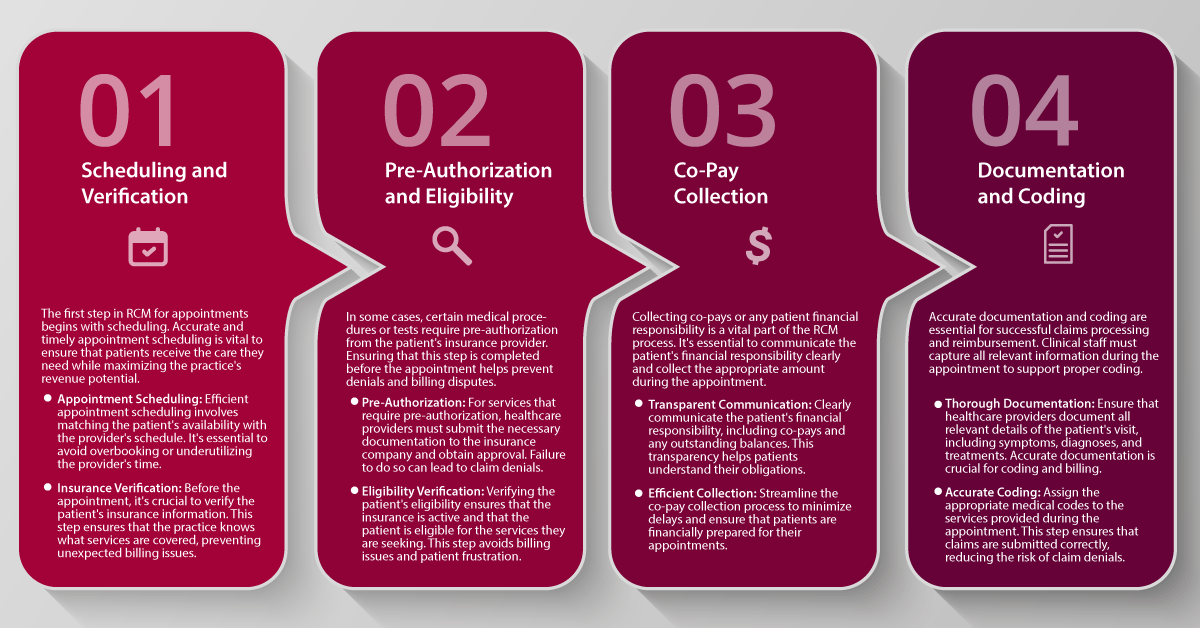In the world of healthcare, ensuring a smooth and efficient revenue cycle management (RCM) process is crucial for healthcare providers. One area where RCM plays a significant role is in managing appointments. Every appointment in a healthcare facility involves several important steps that impact the financial health of the practice. Let’s delve into the four key RCM steps of each appointment:

1. Scheduling and Verification
The first step in RCM for appointments begins with scheduling. Accurate and timely appointment scheduling is vital to ensure that patients receive the care they need while maximizing the practice’s revenue potential.
● Appointment Scheduling: Efficient appointment scheduling involves matching the patient’s availability with the provider’s schedule. It’s essential to avoid overbooking or underutilizing the provider’s time.
● Insurance Verification: Before the appointment, it’s crucial to verify the patient’s insurance information. This step ensures that the practice knows what services are covered, preventing unexpected billing issues.
2. Pre-Authorization and Eligibility
In some cases, certain medical procedures or tests require pre-authorization from the patient’s insurance provider. Ensuring that this step is completed before the appointment helps prevent denials and billing disputes.
● Pre-Authorization: For services that require pre-authorization, healthcare providers must submit the necessary documentation to the insurance company and obtain approval. Failure to do so can lead to claim denials.
● Eligibility Verification: Verifying the patient’s eligibility ensures that the insurance is active and that the patient is eligible for the services they are seeking. This step avoids billing issues and patient frustration.
3. Co-Pay Collection
Collecting co-pays or any patient financial responsibility is a vital part of the RCM process. It’s essential to communicate the patient’s financial responsibility clearly and collect the appropriate amount during the appointment.
● Transparent Communication: Clearly communicate the patient’s financial responsibility, including co-pays and any outstanding balances. This transparency helps patients understand their obligations.
● Efficient Collection: Streamline the co-pay collection process to minimize delays and ensure that patients are financially prepared for their appointments.
4. Documentation and Coding
Accurate documentation and coding are essential for successful claims processing and reimbursement. Clinical staff must capture all relevant information during the appointment to support proper coding.
● Thorough Documentation: Ensure that healthcare providers document all relevant details of the patient’s visit, including symptoms, diagnoses, and treatments. Accurate documentation is crucial for coding and billing.
● Accurate Coding: Assign the appropriate medical codes to the services provided during the appointment. This step ensures that claims are submitted correctly, reducing the risk of claim denials.
By focusing on these four key RCM steps for each appointment, healthcare providers can enhance their financial stability, minimize claim denials, and improve the overall patient experience. An efficient RCM process not only benefits the practice but also ensures that patients receive the care they need without unnecessary billing complications.
